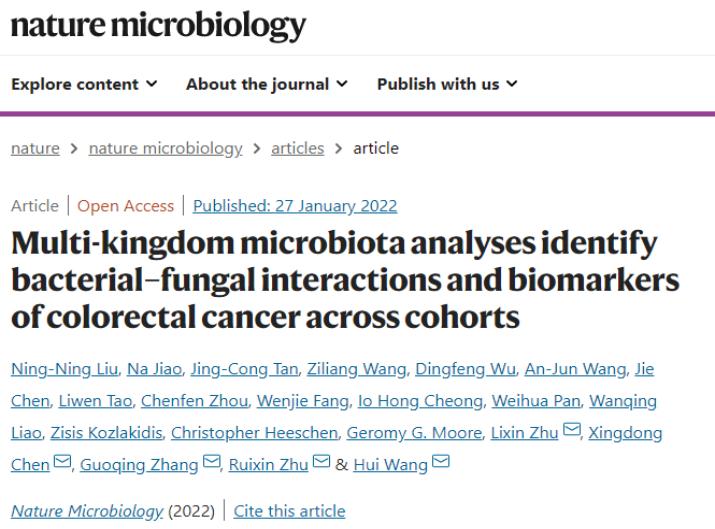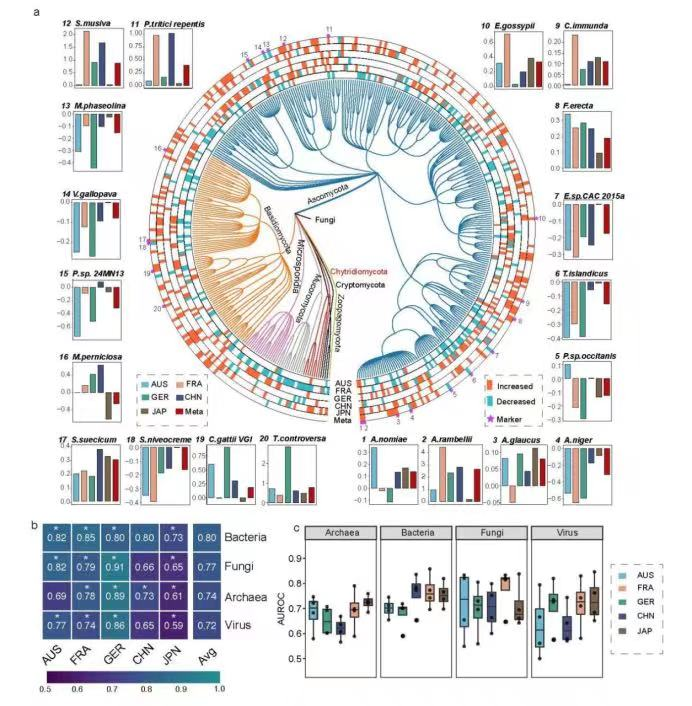Cancer is a major global public health problem and has become the third largest cause of death in China and the second largest cause of death in the United States. The 2021 cancer statistics report released by the journal "CA" of Clinical Oncology shows that the incidence and mortality of colorectal cancer (CRC) ranks third in both men and women, which greatly increases the social burden, so there is an urgent need for new methods of CRC early screening and treatment options for clinical use. A large number of recent studies have shown that the development of colorectal cancer is closely related to changes in the gut microbiome. The gut microbiome includes four kingdoms, which are bacteria, fungi, archaea and viruses, but a holistic, objective, and systematic research on the mechanism of colorectal cancer occurrence and development around the microorganisms of the four sectors of the gut microbiome has not been carried out.

Recently, Professor Hui Wang, Dean of the School of Public Health, Shanghai Jiao Tong University School of Medicine, together with Professor Zhu Ruixin of Tongji University, Professor Zhang Guoqing of the Shanghai Institute of Nutrition and Health of the Chinese Academy of Sciences, Professor Chen Xingdong of Fudan University and Professor Zhu Lixin of the Sixth Affiliated Hospital of Sun Yat-sen University, published an article entitled “Multi-kingdom microbiota analyses identify bacterial-fungal interactions and biomarkers of colorectal cancer across cohorts”. This study investigated four-kingdom microbiota alterations using CRC metagenomic datasets from 8 distinct geographical cohorts, revealed associations between bacterial and fungal species, which provides a new method for diagnosis of colorectal cancer based on microbial and functional markers.
Our findings uncovered CRC-associated microbiota common across cohorts and demonstrate the applicability of multi-kingdom and functional markers as CRC diagnostic tools and, potentially, as therapeutic targets for the treatment of CRC.

Figure 1. Differential species across populations and prediction performances of models constructed with each single-kingdom features.
This study was funded by several projects, the first author and the last corresponding author are both from Shanghai Jiao Tong University School of Medicine. Thanks to the three reviewers, Ran Blekhman, Aleksandar Kostic and George Miller, for their high evaluation of this study: “All my concerns have been addressed. I believe that this is an important contribution.” “I would like to congratulate the authors on this interesting and comprehensive study. My concerns have been sufficiently addressed.”




